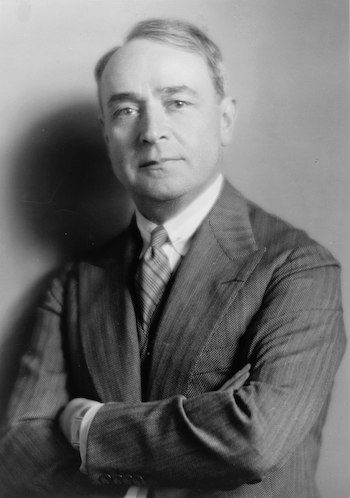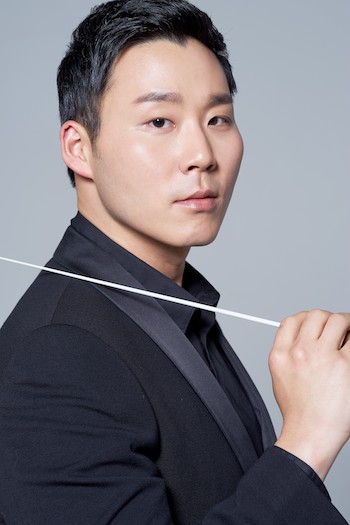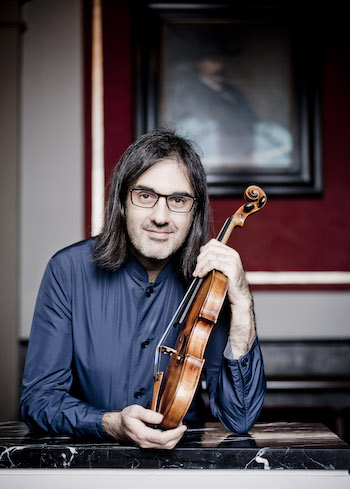Classical Music Preview: The Boston Symphony Orchestra’s 2023-2024 Season — Celebrating the Legacy of Serge Koussevitzky
By Aaron Keebaugh
Through fresh new works and a welcome toss-up of pieces commissioned during Serge Koussevitzky’s historic tenure, the BSO’s coming season will honor the fullness of the Russian-born conductor’s legacy.

BSO’s man of the year, Serge Koussevitzky.Photo: Wiki Common
Serge Koussevitzky left such an indelible impression on the Boston Symphony Orchestra that his impact is still felt a century after his tenure began.
“He was a pretty extraordinary figure,” said BSO artistic administrator Tony Fogg about the orchestra’s 2023-2024 season, which will celebrate the 150th anniversary of Koussevitzky’s birth and 100 years since he came aboard as music director.
Through fresh new works and a welcome toss-up of pieces commissioned during his historic tenure, the BSO’s lineup will honor the fullness of the Russian-born conductor’s legacy.
“We wanted not only to reflect back on what he did but also to look forward,” Fogg said. “He was the one who brought this whole incredible phase of commissioning new work into the lifeblood of the BSO. And so we’re continuing that tradition with a number of commissions which we’re designating as the “Koussevitzky commissions” in tribute to him.”
Those involve an impressively diverse array of new works headlined by the American premiere of Sofia Gubaidulina’s Prologue for Orchestra and the world premiere of a new score by Tania León. In addition, the BSO will offer the first Boston performances of music by Habibi Zhian, James Lee III, Hannah Kendall, Anna Clyne, and Anna Thorvaldsdottir, all to be led by Andris Nelsons.
But the season will also resurrect works that Koussevitzky brought to Symphony Hall for the first time. Olivier Messiaen’s Turangalîla-Symphonie, a BSO commission in memory of Koussevitzky’s wife, makes up part of a two-week Music of the Senses festival in April 2024. Pianist Yuja Wang will appear as soloist.
The festival opens with an unusual performance of Alexander Scriabin’s Prometheus: Poem of Fire, featuring pianist Yefim Bronfman alongside the synesthetic light show the composer originally intended. Koussevitzky had led the premiere of that score in Moscow.
A performance of Sergei Prokofiev’s Symphony No. 4, which Koussevitzky also had a hand in bringing into the world, will be heard under Nelsons’s direction April 25-27, 2024.
And with the conductor’s actual birthday falling in July, look for the huzzahs to extend through 2024, Fogg said.
In addition, the season will see the return of BSO assistant conductor Earl Lee, who made a stellar subscription debut earlier this month. Lee will conduct César Franck’s dark and demonic The Accursed Huntsman alongside Henri Tomasi’s Concerto for Alto Saxophone and Orchestra, showcasing Steven Banks. Lee’s program culminates with a popular warhorse — Tchaikovsky’s Symphony No. 4.
The assortment of the familiar and unfamiliar reflects Lee’s push for a balance between novelty and accessibility. “I had done this piece, The Accursed Huntsman, with the San Francisco Symphony last year,” Lee said. “There’s a famous recording of Charles Munch with the BSO. Since then, our Franck trend kind of died down. And in the late ’90s and 2000s it was never really performed. The symphony also. And now I think it’s making a resurgence. It’ll be fresh since it hasn’t been heard in so long.”
“But then Tony told me that with Tchaikovsky and Franck, you need some spice,” Lee added. “He asked if I had worked with Steve Banks before, and I said I have. He played an oboe concerto on soprano sax with me in Oregon last year. He’s amazing — incredible phrasing and nuance and everything. It was Steve who recommended Tomasi.”
And Lee said he will reinvigorate an evergreen composer like Tchaikovsky by delving into the music’s unmistakable tragedy.

Guest conductor Earl Lee. Photo: BSO
“[The Fourth, Fifth, and Sixth Symphonies] are like a fate trilogy,” he said. “In Four he kind of realizes the fate. Then Five is the optimistic one that he may be thought you could overcome your fate and change something. But then in number Six everyone dies. I try to bring that out.”
Fogg believes that the conventional will also be energized when pianist Paul Lewis performs all five of Beethoven’s piano concertos in a single weekend (October 19-21).
“We did this cycle with him at Tanglewood this past summer,” Fogg said. “And it was such an incredible experience, we felt we wanted to bring it to our audiences here.”
“For him to do it in such a concentrated period is just an enormous undertaking and feat of concentration,” Fogg went on to say. “Very quickly, on the first concert, you sort of get to know Paul’s personality as a musician. And so, you’re listening for those subsequent two installments from a different vantage point. You already know him as a musician, you know what his approach is, you know about his sound.”
Considering that different vantage points transform a listener’s experience, the opera Lady MacBeth of Mtsensk will culminate the BSO’s multi-season exploration of Shostakovich’s music, many of which still invite wide interpretation.
The opera, which will spotlight Kristine Opolais, Pavel Černoch, Sergei Skorokhodov, and Günther Groissböck in performances next January, was the catalyst for Joseph Stalin’s criticism and condemnation. The ever-nervous Shostakovich followed up with the popular Symphony No. 5 as a mea culpa. But western listeners continue to say they hear him pushing against cruel authority.
Fogg is unsure of that interpretation, though he entertains it as a possibility. “One constantly senses that Shostakovich is writing in code,” he said. “But you don’t know what that means.”
Whatever its meaning, Shostakovich’s dark urgency and sardonic wit will supply the stuff of Yo-Yo Ma’s performances of both cello concertos October 12-15, with Nelsons conducting.
Mystery and light will also be the focus of the Music of Midnight Sun festival, a two-week exploration of Nordic music that opens February 29. John Storgårds leads works by Outi Tarkiainen, Carl Nielsen, and Jean Sibelius. On March 7-9, Dima Slobodeniouk returns to Symphony Hall to reprise the 2017 theatrical and musical production of Edvard Grieg’s Peer Gynt.
Other podium guests to appear next season include Hannu Lintu in Schumann’s Symphony No. 4 (November 9-11), Karina Canellakis with Bartók Bluebeard’s Castle (February 8–10), and Tugan Sokhiev in Chausson’s Symphony in B‐flat (February 15–18).
Clark Rundell joins vocalist and bassist esperanza spalding for an all-Wayne Shorter program March 21-23.
Other new programs include Domingo Hindoyan leading the American premiere of Roberto Sierra’s Symphony no. 6 from March 28-30. Thomas Adès and Kirill Gerstein also team up once again for Ligeti’s Piano Concerto along with Liszt’s Les préludes, Stravinsky’s Orpheus, and Adès’s own Tevot (November 16-18).
Next season’s soloists include violinists Leonidas Kavakos in the Berg concerto (November 9–11) and Pekka Kuusisto in his BSO debut with Nielsen’s Violin Concerto (February 29–March 2).

Violinist Leonidas Kavakos Photo: Marco Borggreve
Pianist Anna Vinnitskaya also makes her BSO debut with Tchaikovsky’s Piano Concerto No. 1 (November 2–4); and 2022 Cliburn Competition winner Yunchan Lim will play Rachmaninoff’s knuckle-busting Piano Concerto No. 3 (February 15–18).
There will be cellists aplenty. Alisa Weilerstein plays Haydn’s Cello Concerto in C (February 8–10), Pablo Ferrández will perform the Elgar concerto in his BSO debut (March 28–30), and BSO principal cellist Blaise Déjardin will be featured in the American premiere of Elena Langer’s The Dong with a Luminous Nose (March 14–16)
BSO principal trumpeter Thomas Rolfs will be soloist in Detlev Glanert’s Trumpet Concerto under Nelsons’ direction in concerts that take place April 25-27, 2024.
The season opens on October 5 with Rudolf Buchbinder performing Mozart’s Piano Concerto No. 23. The same program will see Andris Nelsons leading Strauss’s suite from Der Rosenkavalier, Arturs Maskats’s Tango, and Beethoven’s Consecration of the House Overture. The official opening night (October 7) will spotlight the Aaron Diehl Trio in Duke Ellington’s New World A-Coming alongside Carlos Simon’s Four Black American Dances.
The Boston Symphony Chamber Players open their season November 19 with a program dedicated to the 100th birthday of Györgi Ligeti.
And a special pre-season John Williams Tribute will feature the Boston Pops performing the composer’s film scores. Star Wars: The Story in Music — an additional event — will take listeners on a musical journey through the entire film saga.
“We’re playing to the strengths of the various artists, who we’ve been lucky enough to engage next season,” Fogg said. “We hope that it’s really something that excites the imagination.”
Aaron Keebaugh has been a classical music critic in Boston since 2012. His work has been featured in the Musical Times, Corymbus, Boston Classical Review, Early Music America, and BBC Radio 3. A musicologist, he teaches at North Shore Community College in both Danvers and Lynn.
